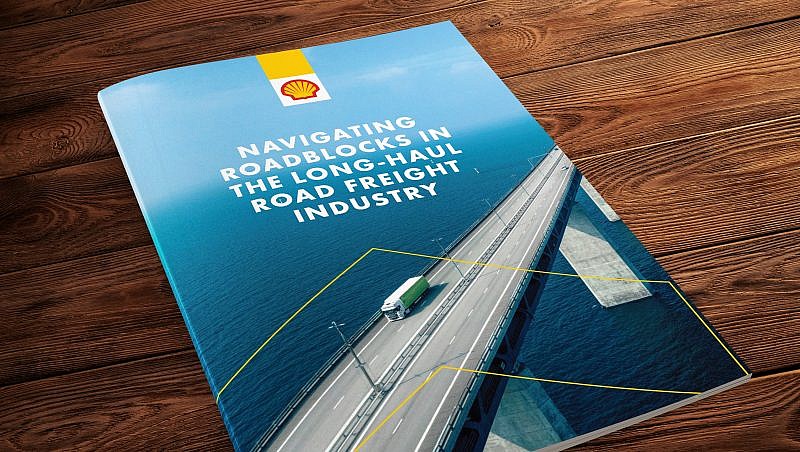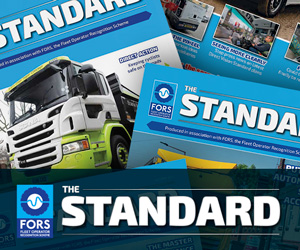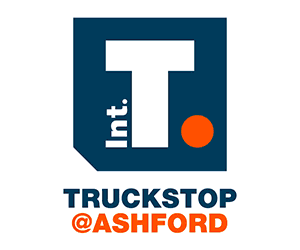
GLOBAL ROAD FREIGHT SECTOR SET TO GROW BY 4.3%1, AS INDUSTRY TRANSFORMS THROUGH DIGITAL AND DECARBONISATION SOLUTIONS
SHELL AND FROST & SULLIVAN LAUNCH WHITEPAPER EXAMINING THE CHALLENGES AND KEY TRENDS TRANSFORMING THE ROAD FREIGHT INDUSTRY
Today, Shell and Frost & Sullivan published new research revealing that global road freight revenues are expected to grow by an average of 4.3% annually from 2020 to 2025.1 The whitepaper, Navigating Roadblocks in the Long-Haul Road Freight Industry, sheds light on the status of the commercial road freight industry, as the world responds to the COVID-19 pandemic.
The whitepaper examines key developments within the industry, from how digitalisation is advancing a new generation of fleet management solutions, to the role sustainable practices and decarbonisation strategies will play in futureproofing operations. It offers valuable insights to fleet professionals, helping them to better position themselves for the future. Alongside developments that are driving growth, Frost & Sullivan also identifies the top challenges faced by the road freight industry today:
· Skilled Driver Shortage – a decline in the availability of skilled drivers has resulted in driver shortages and skills gaps. To address these concerns, fleet managers should utilise data-driven fleet management solutions, like telematics, which can help facilitate decision making for drivers and fleet managers and encourage safer driving practices. It can also help to maximise efficiency through optimising operations and identify opportunities to improve performance.
· Cost management – Reducing operational expenses is essential in an uncertain economic climate. However, many fleets are yet to explore AI-driven fleet management services such as predictive maintenance, which can reduce breakdowns by 70% or more, and digital freight brokerage solutions, which minimise efficiency losses through improved utilisation and load optimisation.2 Studies also suggest that predictive maintenance could reduce maintenance costs by up to 30%3, and in certain cases, the use of high-quality, differentiated fuels and lubricants can generate economy savings of 8.9%.3
· Sustainability (Decarbonisation) – over 70% of industry respondents noted that this was their organisations’ leading, or one of their top three priorities.4 In order for fleets to operate more sustainably, while remaining profitable, there is the opportunity to invest in short-to-mid-term solutions such as LNG, BioLNG and biofuels. The transition to alternative powertrains such as battery electric and hydrogen vehicles will be critical to decarbonisation in the longer term.
· Security – 65% of fleet managers consider fraud as a problem for their business.5 To protect their businesses and limit threats to profitability, fleets should embrace digital fleet management tools, like payment monitoring, which enables full visibility of expenditure and geo-fencing to limit the risk of security breaches.
· Regulatory Environment – an evolving regulatory landscape means that fleet managers must keep pace to futureproof their operations, from driver safety – such as changes to working hours and conditions – to sustainability legislation.
Patrick Carré, Vice President of Commercial Road Transport at Shell, said: “Achieving an interconnected and more sustainable future requires collaboration with customers, partners and stakeholders. At Shell Fleet Solutions, we are committed to helping customers navigate shifts in the industry, by providing digital fleet management tools like Shell Telematics, streamlining tolling payments in Europe and increasing access to low emissions fuels, like LNG, BioLNG, hydrogen fuel cell and battery electric vehicles. These offers are designed to help fleets optimise their total cost of
ownership (TCO) and improve security and convenience across operations with on the road services, while advancing sustainability goals.”
While the pandemic has intensified the challenges faced by the industry, it has also embedded enhanced digitalisation and flexibility into companies around the world, which Frost & Sullivan indicates will make businesses more resilient and better equipped to tackle the pre-existing issues threatening the industry and profitability.
Frost & Sullivan also highlight that the road freight industry is seeing greater adoption of digitalisation, alternative fuels and supporting technologies, ultimately improving efficiencies and the way business is conducted.
Franck Leveque, Partner & Global Client Leader, Mobility Practice at Frost & Sullivan, said: “The past year has proven how flexible and adaptable industries must be, not just to continue operations, but to survive. By embracing more digital solutions and services like telematics, contactless payment, prognostics and digital brokerage, fleets are better equipped to face the fallout from COVID-19, which continues to unfold day by day, and to tackle the new world we find ourselves living and working in.”
As the global road freight industry regains its footing following a tumultuous year, research indicates the shift towards digitalisation and acceleration of industry decarbonisation will play a pivotal role in reaching industry-wide sustainability goals, while increasing efficiency and helping fleets to remain profitable.
Click here to read the full whitepaper.
- 1-Frost & Sullivan (2021)
- 2-“Cost saving tips beyond fuel savings: Properly timing maintenance” Fleet Answers, http://www.fleetanswers.com/content/cost-saving-tips-beyond-fuel-savings-properly-timing-maintenance (19/10/2018)
- 3-Making Fuel Work for your Bottom Line: Overcoming the false economy that standard fuels can help the road transport sector reduce Total Cost of Ownership. Shell Commercial Fuels (2018)
- 4-Shell, “Decarbonising Road Freight: GETTING INTO GEAR – Industry Perspectives”, https://www.shell.com/promos/energy-and-innovation/decarbonising-road-freight-getting-into-gear/_jcr_content.stream/1611925351489/2864c1a1d4ffb0b9e73bc6b66842cbd870dfbd3b/decarbonising-road-freight-industry-report.pdf (2021)
- 5-Edelman Fleet Manager Survey (2016)




